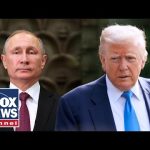President Trump arrived in Kuala Lumpur and oversaw what can only be called a diplomatic triumph: the Kuala Lumpur Peace Accord, signed on October 26, 2025, that cements an expanded ceasefire between Thailand and Cambodia after brutal border clashes this year. The ceremony was not a photo-op — it formalized withdrawals of heavy weapons, prisoner releases, and observer deployments to stabilize a volatile region, and it happened because America reasserted leverage where others shrugged. This is the kind of results-driven statecraft Americans were promised and desperately needed.
At the same time Trump locked in a pragmatic trade framework with Malaysia that directly addresses the chokehold Beijing has sought over critical minerals; Kuala Lumpur pledged not to ban or quota rare earth exports to the United States and agreed to measures that expand U.S. market access and investment cooperation. The deal also formalized a 19 percent tariff rate on many Malaysian goods as part of a reciprocal agreement, which provides predictable terms while protecting American industry. This isn’t charity — it’s smart, reciprocal commerce that secures vital supply chains for our defense and technology sectors.
The strategic impact is immediate: China’s attempt to weaponize rare earths was bluntly undercut when regional partners moved to diversify supply and welcome U.S. investment and processing technology. Senior U.S. officials and reputable outlets now expect Beijing to hesitate on sweeping export controls after the talks in Malaysia, because the world is pushing back and America is finally offering realistic alternatives. Where previous administrations talked about reducing dependence, this president is building real, friend-shored capacity that flips leverage back to the free world.
Conservative readers should recognize what this moment represents: a return to unapologetic American leadership that combines hard-nosed trade pressure with decisive diplomacy. For years the globalist class insisted that appeasement and passive multilateralism were the answer; today’s outcome proves the opposite — when America stands firm, allies cooperate and adversaries blink. President Trump’s willingness to tie trade outcomes to security behavior forced reluctant players to choose between stability and chaos, and they chose stability.
The economic upside is tangible for U.S. manufacturers, defense contractors, and workers: Malaysia sits on an estimated 16.1 million tonnes of rare earth deposits and has the industrial potential to become a reliable partner if given the right incentives and technological collaboration. Opening those supplies to American firms and encouraging downstream processing outside of China reduces risk for everything from jet engines to electric vehicles, and it keeps high-value jobs and know-how aligned with U.S. security interests. This is practical patriotism — protecting American industry and families by securing the raw materials our economy depends on.
Patriots should be heartened but vigilant: the swamp and the pundit class will wring their hands and spin this as temporary or incidental, but the facts speak for themselves — a strong America gets results, and results protect our prosperity and peace. Now is the time for voters who love country and liberty to back leaders who act, not lecture, and to demand policies that keep supply chains inside the circle of freedom. This administration just delivered a win for hardworking Americans and for the strategic future of our nation.




